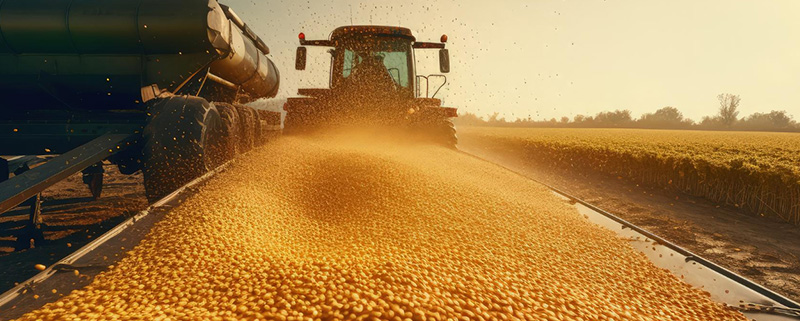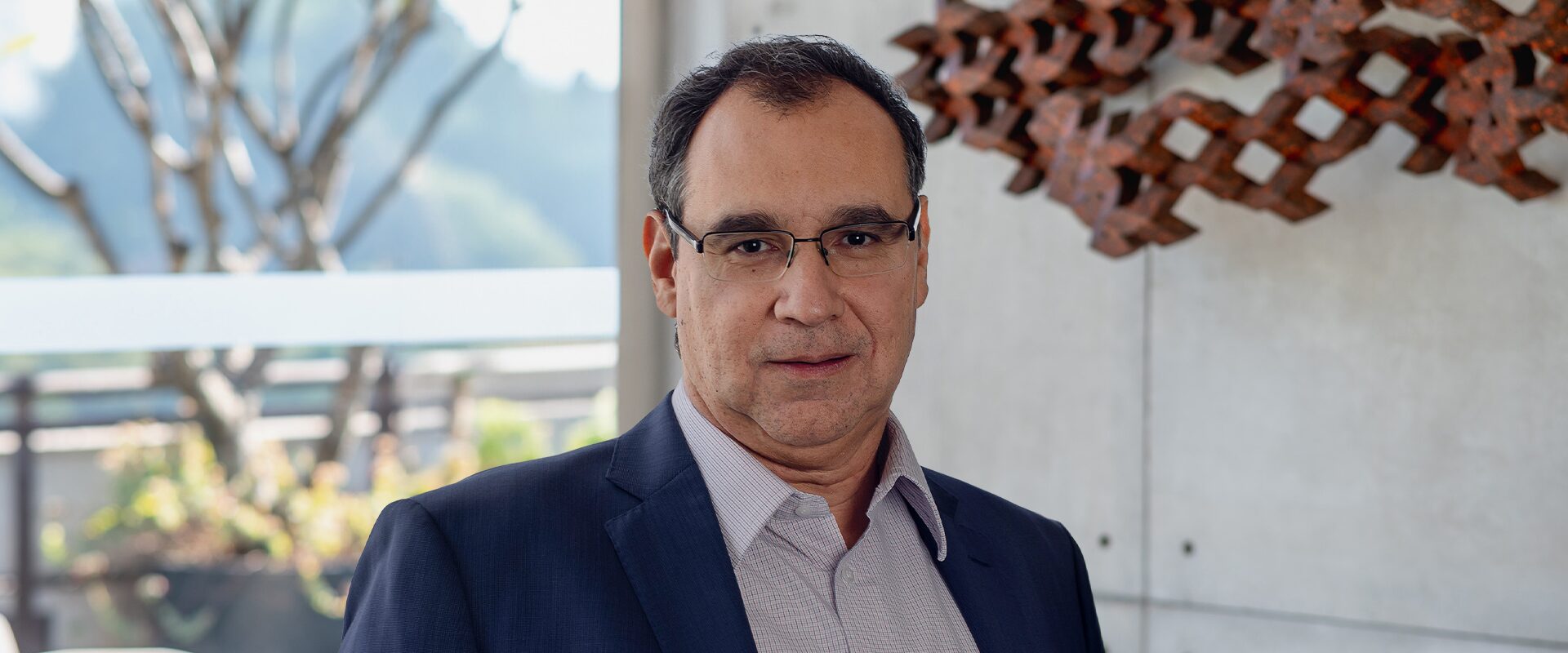
The Agribusiness Newsletter brings information and news about the main regulations and legal texts relating to the regulation of agribusiness in Brazil. This initiative seeks to cover the agribusiness industry on its transactional, litigation, tax and regulatory levels, and is an invitation for all of those working in this market to both access important news and comments on vital topics from the sector.
This material is for informative purposes only, and should not be used for decision-making. Specific legal advice can be provided by our legal team.
NEWS

CVM drafts new FIAGRO under market expectations and final regulation is expected to be published by the end of September
The Brazilian Securities and Exchange Commission (“CVM”) is in the final stages of drafting regulations for the new multimarket Investment Fund in Agroindustrial Productive Chains (“FIAGRO”), which is expected to be released later this year.
The regulation of multimarket FIAGRO is one of CVM’s regulatory priorities for 2024, seeking to create a more favorable environment for investments in the agroindustrial sector, with greater security, transparency and diversification.
The CVM highlighted FIAGRO’s importance for the development of Brazilian agribusiness, and mentioned the possibility of including investments in the carbon market as part of the new regulations, which would be positive for both the sector and the environment. The CVM is also considering the inclusion of investments in carbon credits from the voluntary market, conversion of pastures and degraded land, and even logistics, in order to increase the attractiveness of Fiagro and contribute to the sustainability of Brazilian agribusiness.
In addition, the CVM believes that the publication of the final FIAGRO regulations will contribute to market security and transparency, encouraging more investment in the agribusiness sector and bringing agribusiness closer to the capital markets. The new regulations on FIAGRO will, in this regard, be an important milestone for the agro-industrial sector, consolidating Brazilian agribusiness in the capital markets.
The proposed regulation was subject to a public consultation, which concluded in February. The market eagerly awaited the release of the final regulations by the end of September.
For more information: Final FIAGRO regulations to be released by the end of September | Portal Máquinas Agrícolas and CVM drafts a new FIAGRO under market expectations | Finanças | Valor Econômico (globo.com)
FIAGRO reaches BRL 934.6 million in issuances in the second quarter
FIAGRO recorded an issuance volume of BRL 934.6 million between April and June 2024, as reported by the Brazilian Association of Financial and Capital Market Entities (“ANBIMA”).
This figure represents an increase of 118.8% compared to the previous quarter.
During the second quarter, 18 FIAGRO public offerings were carried out, 15 of which were Credit Rights Investment Funds (“FIAGRO-FIDC”) and three were Real Estate Funds (“FIAGRO-FII”). The main subscribers were individuals (44.6%), followed by institutional investors (22.9%) and investment funds (19.1%).
In addition, June marked the tenth consecutive month of positive funding for FIAGRO, and FIAGRO-FIDC led the funding during the period, with BRL 93.3 million. The FIAGRO-FII category is the most representative, accounting for 44.4% of the total, followed by Equity Investment Funds (“FIAGRO-FIP”) with 43.4% and FIAGRO-FIDC with 12.2%. The number of funds reached 110, with 749,000 active accounts.
ANBIMA points out that FIAGRO’s growth reflects investors’ growing interest in the agroindustrial sector, which offers opportunities for diversification and stability. Furthermore, ANBIMA emphasizes the importance of governance and transparency in capital markets to attract more investment and guarantee the sustainability of agroindustrial projects.
The FIAGRO industry continues to expand, with a significant increase in the volume of issuances and net funding despite the challenges faced. The sector is expected to continue to grow, driven by the interest of investors and the support of public policies and market initiatives.
For more information: FIAGRO reaches BRL 934.6 million in issuances in the second quarter | ANBIMA
Agribusiness participation in capital markets grows 19.5% in one year
The CVM announced that agribusiness’s participation in the capital markets grew 19.5% between June 2023 and June 2024, reaching BRL 509.59 billion.
This significant growth was highlighted in the 7th edition of the CVM Agribusiness Newsletter, published by the CVM’s Superintendence of Securitization and Agribusiness (“SSE”). The newsletter indicates that the participation of agribusiness in the capital market is on the rise, which reflects the sector’s potential to keep growing.
In addition to the general growth in financial volume, the FIAGRO market has also shown a remarkable improvement, with an increase of 153% in the last 12 months. FIAGRO’s net worth reached BRL 37.3 billion in June 2024, surpassing the average growth of the capital markets, which was 9% in the same period. This data indicates a growing interest among investors in financial instruments related to agribusiness.
The CVM also pointed out that agribusiness participation in capital markets has grown significantly and is committed to leveraging this sector even more.
For more information: Agribusiness participation in capital markets grows 19.5% in one year | Brazilian Securities and Exchange Commission (www.gov.br)
São Paulo government announces aid package for those affected by forest fires
The São Paulo State Secretariat of Agriculture and Supply will work on four fronts to help farmers affected by the recent forest fires.
Funds will be allocated for contingencies, emergency measures will be adopted to prevent the imposition of penalties as a result of the calamity, a recovery plan will be established for the affected homes, and discounts will be granted to animal nutrition and agricultural input companies on items needed to rebuild crops.
In addition, rural insurance provides subsidies to mitigate the impact of production losses and funds for emergency costs.
According to Decree No. 68.805/2024, published on August 24, 2024, an emergency situation was declared for 180 days in the 45 municipalities affected by the forest fires.
For more information: São Paulo announces BRL 10 million aid package for producers affected by forest fires | São Paulo State Secretariat of Agriculture and Supply
AGRO IN THE MEDIA

The party is over: Treasury clamps down on issuance of CDCAs
Broadcast – Companies to reassess CDCA funding with new regulations
Watching out for Gilson Bittencourt: the day after the shock on CRAs and LCAs
REGULATION

TAX REGULATION
Tax Reform: House of Representatives approves base text of PLP 108/2024
On August 13, 2024, the House of Representatives approved the base text of Supplementary Bill (“PLP”) 108/2024, the second bill originally presented by the Executive Branch to regulate some aspects of the Tax Reform.
This bill aims to regulate the creation and structuring of the State Tax on Goods and Services (“IBS”) Steering Committee, IBS administrative litigation, the distribution of IBS collection proceeds, and provisions relating to the transition from the State Value-Added Sales Tax (“ICMS”) to IBS.
In addition, the supplementary bill provides for changes to the National Tax Code, providing details on the incidence of the Estate and Gift Tax (“ITCMD”), the Real Estate Transfer Tax (“ITBI”) and the Public Lighting Contribution (“COSIP”).
Among the main changes to the original bill, we briefly highlight the following:
- Optional advance payment of the ITBI upon executing the Real Estate Ownership Transfer (public deed or private document), with the option of applying a lower rate than that levied at the time of registering the real estate property;
- Levy of the ITCMD on disproportionate dividend distribution in the event of a corporate act carried out on a liberal basis and without a business justification that can be proven;
- Levy of the ITCMD on private pension plans, such as the Free Benefit Generator Plan (“PGBL”) and the Free Benefit Generator Life Plan (“VGBL”) – the latter only applies if the amount is held for less than five years;
- Guaranteed taxpayer participation at the court of final appeals (Superior Chamber) for the judgment of administrative demands involving the IBS; and
- The Committee for Harmonization of Tax Administrations will standardize the IBS and the CBS – as requested by the chairman of the IBS Steering Committee, the highest authority in the Ministry of Finance, or entities representing the taxpayers’ economic categories.
After the highlights proposed by the House of Representatives are duly approved and analyzed, the bill will move forward to the Senate’s scrutiny – which will hold a single round of voting – and, subsequently, will seek the president’s sanction or veto.
Law grants PIS/Cofins suspension and presumed credit on the sale of corn meal and oil and waste from the brewing and distilling industry
On August 01, 2024, Law No. 14,943/24 was published, extending the PIS/Cofins suspension and presumed credit provisions of Law No. 12,865/2013 to revenues from the sale of corn oil and its fractions (NCM 1515.2 – presumed credit only), bran, sharps and other corn residues (NCM 2302.10.00), and dregs and waste from the brewing and distilling industry (NCM 2303.30.00).
Legal Framework for Low Carbon Hydrogen is established
On August 02, 2024, Law No. 14,948/24 was published, establishing the Legal Framework for Low-Carbon Hydrogen.
The new law establishes the National Low Carbon Hydrogen Policy, the Brazilian Hydrogen Certification System (“SBCH2”), and the Special Incentive Regime for Low Carbon Hydrogen Production (“Rehidro”).
The legal framework established tax incentives for the sector’s industry, as well as definitions and classifications of hydrogen, and the powers of the National Petroleum Agency (“ANP”) to regulate the matter.
FINANCIAL REGULATION
CMN decision standardizes regulation for eligible CDCA backing
At an ordinary meeting held on August 22, 2024, the National Monetary Council (“CMN”), through Resolution No. 5.163, of August 22, 2024 (“Resolution 5.163”), amended Resolution No. 5.118, of February 01, 2024 (“Resolution 5. 118”), to standardize the conditions for issuing Agribusiness Credit Rights Certificates (“CDCA”) with the regulations in force for Agribusiness Receivables Certificates (“CRA”) and Real Estate Receivables Certificates (“CRI”).
CDCAs are freely negotiable credit securities linked to credit rights originating from business carried out between rural producers or their cooperatives and third parties, which represent a promise of payment in cash. This regulatory amendment aims to increase the efficiency of policies focused on agribusiness, ensuring that these securities are backed by operations that are compatible with the purposes that justified their creation.
To preserve operations while they are being issued, the measures approved by the CMN through Resolution 5.163 will not apply to CDCAs that have already been distributed or whose public distribution offerings have already been subject to an application with the Securities and Exchange Commission.
For more information: CMN standardizes regulation on eligible backing for incentive bonds
ENVIRONMENTAL REGULATION:
Forestry Matters
Federal government establishes National Integrated Fire Management Policy
On August 01, 2024, the Federal Government published Law No. 14,944/2024, establishing the National Integrated Fire Management Policy.
This policy aims to regulate and foster inter-institutional coordination regarding:
- integrated fire management;
- reducing the incidence of and damage caused by forest fires within the Brazilian territory; and
- recognizing the ecological role of fire in ecosystems and respecting traditional fire use knowledge and practices.
According to the regulation, the use of fire on vegetation will be permitted in the following cases:
- in places or regions whose peculiarities justify the use of fire in agroforestry practices, with prior authorization for controlled burning from the competent environmental agency for each rural property or on a regionalized basis;
- in prescribed burning, following the procedures regulated by the appropriate environmental agency and in accordance with the integrated fire management plan, in compliance with the guidelines established by the National Committee for Integrated Fire Management;
- in scientific research activities duly approved by the appropriate bodies and carried out by recognized research institutions, with prior authorization to burn prescribed by the appropriate environmental body;
- forest fire prevention and fighting practices and associated training;
- in cultural and subsistence farming practices carried out by indigenous peoples, quilombola communities, other traditional communities and family farmers, in accordance with their uses and customs;
- training and education of forest firefighters; and
- the cutting of sugar cane, as a clearing and facilitating method, in areas that cannot be mechanized, in accordance with regulations issued by the competent state agency.
For more information: LAW No. 14,944, OF JULY 31, 2024.
Pará removes authorization requirement for charcoal harvesting
On July 31, 2024, the Pará State Secretariat for the Environment and Sustainability (“SEMAS”) published SEMAS Normative Instruction No. 01/2024, which excluded from Normative Instruction No. 15/2011 the requirement for a technical project, analysis, field inspection and authorization, to be issued by SEMAS, for the harvest and sale of forest products in natura in the case of harvests for charcoal production.
For more information: Official Gazette of the state of Pará | Official Press of the State of Pará – page 41
São Paulo establishes procedures for locating properties in protected areas
On July 31, 2024, the Foundation for Forest Conservation and Production of the State of São Paulo (in Portuguese, “Fundação Florestal”) published FF/DE Normative Ordinance No. 438/2024, establishing procedures for locating areas/properties regarding Conservation Units and other protected areas under the management of Fundação Florestal.
Whenever a developer considers that the overlap between the area/property and the Conservation Unit is occurring due to incompatibility between the representations, a specific request for analysis may be submitted, provided it is accompanied by the following additional documents:
- a plan georeferenced to the Brazilian Geodetic System and a Descriptive Memorial, informing and representing all the vertices defining the area/property using geographic or cartesian plane coordinates in digital files; and
- a technical responsibility annotation (“ART”), or equivalent document, issued by the professional who carried out the topographic-planialtimetric survey that originated the documents indicated in the previous item.
For more information: FF Normative Ordinance No. 438/2024
São Paulo bans burning of sugarcane straw until November 30 at specific times
On August 05, 2024, São Paulo State Environmental Company (“CETESB”) published CETESB Notice No. 12/2024, which banned the burning of sugarcane straw from 6 a.m. to 8 p.m. in the following municipalities from July 01 to November 30, 2024: Altair, Barretos, Bebedouro, Cajobi, Colina, Colômbia, Embaúba, Guaíra, Guaraci, Jaborandi, Monte Azul Paulista, Olímpia, Pirangi, Severínia, Taiaçu, Taiúva, Terra Roxa, Viradouro and Vista Alegre do Alto.
For more information: Determination of August 01, 2024 | Official Gazette of the State of Sao Paulo
Minas Gerais establishes state policy on sustainable irrigated agriculture
On July 26, 2024, State Law No. 24,931/2024 was published, establishing the state’s policy on sustainable irrigated agriculture and providing for the collective granting of the right to use water resources, laying down a number of principles, guidelines, and targets.
According to the new state law, the State Plan for Sustainable Irrigated Agriculture and the Regional Irrigation Plan must be developed. These plans must provide guidelines for the expansion and improvement of sustainable irrigated agriculture, taking into account certain requirements.
In addition, the policy includes provisions on irrigation projects, credits, incentives and payment for environmental services, certification of irrigation projects, and penalties for farmers who violate the obligations established in the legislation.
For more information: LAW No. 24,931, OF JULY 25, 2024
Minas Gerais provides for the integration of CAR data
As of August 2024, information on the Rural Environmental Registry (“CAR”) in the state of Minas Gerais became part of the Indicators Panel of the State Environment and Water Resources System (“SISEMA”).
Through the Indicators Panel, the population will be able to obtain monthly updated information, such as the number of properties and areas registered in Minas Gerais, the total areas to be restored, the number of CARs already analyzed, and the Consent Decrees of the Environmental Regularization Program (“PRA”) already signed.
For more information: Data on the Rural Environmental Register now integrates the SISEMA Indicators Panel | SEMAD
Minas Gerais establishes mandatory registration procedures for agricultural establishments, livestock farms and agricultural activities
On August 24, 2024, the Minas Gerais State Institute of Agriculture and Livestock (“IMA”) published IMA Ordinance No. 2,324/2024, which establishes the procedures for the mandatory registration of agricultural establishments, livestock farms and agricultural activities.
The registration of agricultural establishments will be carried out through an application defined by the IMA, completed and signed by the owner, accompanied by copies of certain documents of the applicant, as well as copies of the documents of the agricultural establishment described in the ordinance.
The regulation provides for additional documentation to be submitted when the registration of an agricultural establishment is intended to regularize the transfer of assets due to succession, partition or donation, and the circumstance in which it will be considered “provisional”.
Access to the data contained in the IMA’s register will be granted in one of the following ways:
- computerized system established by the IMA, using a previously registered user and password;
- a request from the producer upon presentation of an official identification document with a photo; or
- judicial decision.
For more information: Executive Journal | Jornal Minas Gerais – page 8
Maranhão publishes regulation on the use of fire for cleaning and management of areas
On August 01, 2024, the State Government of Maranhão published Decree No. 39,289/2024, which provides for a ban on the use of fire for clearing and managing areas in Maranhão.
Between August 01, 2024, and November 30, 2024, the use of fire for clearing and managing areas is prohibited throughout Maranhão. The ban does not apply to fire prevention and firefighting practices carried out or supervised by public institutions responsible for preventing and fighting forest fires.
Furthermore, in cases where the use of fire in agricultural or forestry practices is legally authorized, it must be replaced whenever possible with sustainable practices. In these cases, it will be up to the State Secretariat for the Environment and Natural Resources (“SEMA”) to issue an exceptional authorization.
For more information: download.eassinado.php (diariooficial.ma.gov.br)
Mato Grosso sets deadline for submitting legal reserve environmental compensation project
On August 06, 2024, the Mato Grosso State Secretariat for the Environment (“SEMA”) published Ordinance No. 973/2024, which establishes a deadline for submitting a legal reserve environmental compensation project for rural producers who have signed a Settlement Agreement with the Mato Grosso Rural Environmental Registration System (“SIMCAR”).
The regulation establishes a deadline of December 31, 2024, for submitting proof of payment of the inspection fee and the environmental compensation project. This deadline applies only to interested parties who have signed the Settlement Agreement for legal reserve compensation under SIMCAR and whose compliance deadline has expired or will expire before December 31, 2024.
For more information: Official Gazette / Visualizations (iomat.mt.gov.br)
Mato Grosso publishes regulation on registration of planted forests
On August 07, 2024, the Secretariat of State for Economic Development and the Institute of Agricultural Defense of Mato Grosso published SEDEC/INDEA/MT Joint Normative Instruction No. 02/2024, which provides for the registration of planted forests for commercial purposes existing within the territory of Mato Grosso, through the Agricultural Defense Institute of the State of Mato Grosso, which must establish guidelines for surveying the inventory of planted forests, carry out diagnostic actions to prevent and control forest pests and diseases of economic importance.
The regulation establishes that owners of rural establishments that have planted forests for commercial purposes in their possession within the scope of Mato Grosso are required to register their Forest Production Unit with INDEA-MT through the Plant Defense System (“SISDEV”), provide all the requested data, and update their registration annually.
The register must be updated in February and March of each year, except for plantations intended exclusively for ornamental purposes. In addition, any establishment or rural property with planted forests, equipment and vehicles used for silvicultural purposes are subject to the inspection and control referred to in this normative instruction.
For more information: Official Gazette of the State of Mato Grosso | Iomat
Piauí announces new vegetation suppression authorization procedure
On July 26, 2024, the Piauí State Secretariat for the Environment and Water Resources (“SEMARH”) determined that, as of August 01, 2024, all requests for Authorization for Vegetation Suppression (“ASV”) must be filed with the Piauí Integrated Environmental Management System (“SIGA”), given that all authorization requests will be processed jointly between SIGA and the National System to Control the Origin of Forest Products (“SINAFLOR”).
For more information: SEMARH announces new procedure for vegetation suppression authorization | SEMARH
Acre publishes law on environmental compensation and forest replacement
On August 21, 2024, the State Government of Acre published Law No. 4,395/2024, which provides for environmental compensation and forest replacement in Acre.
The provisions on legal reserve compensation follow the provisions of the Forest Code, establishing that compensation can be provided through:
- the acquisition of an Environmental Reserve Quota (“CRA”);
- the leasing of an area under environmental easement or Legal Reserve;
- the donation to the government of an area located within a Conservation Unit in the public domain pending land-title regularization; and
- the registration of another equivalent area that exceeds the Legal Reserve on a property owned by the same person or acquired from a third party, with established native vegetation, in regeneration or recomposition, as long as it is located in the same biome.
The law also establishes specific obligations for the land regularization of rural properties in Acre, through the following modalities, in short:
- planting or carrying out natural regeneration; and
- compensation through forest easement or the acquisition of forest or other forms of native vegetation that exist on another property and exceed its legal reserve.
The law stipulates that forest replenishment can be carried out through direct and indirect forest planting.
In addition, those responsible for complying with forest replacement through direct or indirect forest planting must submit a technical report containing the forest inventory and a demonstration of the evolution of the Average Annual Increase (“IMA”) of the reforested area.
For more information: Official Gazette of the State of Acre – August 21, 2024 – page 73
Rio Grande do Sul migrates state CAR system to federal platform
On August 23, 2024, the State Secretariat for the Environment and Infrastructure of Rio Grande do Sul completed the migration of the state’s Rural Environmental Registry system (“SiCAR RS”) to the federal Rural Environmental Registry platform (“SiCAR”).
This change requires all necessary registrations and rectifications to be carried out through the Federal Registration Module.
For more information: Rio Grande do Sul completes CAR system migration to federal platform
Sergipe notifies blocking of DOF systems without updates
The State Environmental Administration of Sergipe (“ADEMA”) has released a warning to users of the system for issuing the Document of Forest Origin (DOF Legacy and DOF+ Traceability) regarding the possibility that the system will be blocked after 180 days without updates.
ADEMA indicated that registered loggers and construction companies should keep the systems active to avoid temporarily losing access to their functionalities, which occurs automatically in case of inactivity.
For more information: ADEMA alerts on blocking of Document of Forest Origin issuing systems after 180 days of inactivity
Water Resources
Paraná sets deadlines for compliance with water resource grant conditions
On July 30, 2024, the Paraná State Water and Land Institute (“IAT”) published Ordinance No. 286/2024, which establishes deadlines regarding the frequency of reporting on compliance with certain conditions of the Ordinances and Declarations of Use of Water Resources issued by the Information System for Environmental and Water Resources Management (“SIGARH”).
Prior Authorization Ordinances for the Use of Water Resources issued by SIGARH for surface and underground abstraction that do not include the frequency of submission for the following conditions must take into account the following deadlines:
- installation of a flow measuring device within 640 days of the issuance of the administrative act;
- installation of a device to measure the flow of discharged water, within 640 days after the administrative act is issued.
On the other hand, Ordinances authorizing the Right to Use Water Resources and Declarations of Insignificant Uses issued by SIGARH for surface and underground abstraction that do not include the frequency of submission for the following conditions must take into account the following deadlines:
- installation of a flow measuring device within 90 days after the administrative act is issued;
- installation of a device to measure the flow of water released within 90 days after the administrative act is issued;
- measurement of the abstraction flow rate, with a deadline of 365 days after the ordinance is issued for submitting the first self-monitoring report; and
- discharge flow measurement, with a deadline of 365 days after the ordinance is issued for sending the first self-monitoring report.
Prior Authorization Ordinances, Ordinances for the Right to Use Water Resources and Declarations of Insignificant Uses issued by SIGARH for other use purposes that do not include the submission frequency for other conditions should be consulted at the Authorization Management Office (“GOUT”).
For more information: Official Gazette of the State of Paraná – page 27
Tocantins signs Technical Cooperation Agreement to improve sustainable management of water resources
On August 07, 2024, the State Government of Tocantins, through the Tocantins Nature Institute (“Naturatins”), signed a Technical Cooperation Agreement (“ACT”) with the National Water and Basic Sanitation Agency (“ANA”) to improve and integrate the procedures for regulating the use of water resources.
The agreement aims to:
- establish a common database on the availability and demand for water resources;
- implement an integrated quantitative water balance system;
- integrate Tocantins’ authorization systems with the Federal Use Regulation System (“REGLA”); and
- improve regulations concerning water use.
For more information: State Government of Tocantins signs Technical Cooperation Agreement to improve sustainable management of water resources | Naturatins
Agrochemicals
Mato Grosso publishes regulation on use of pesticides, environmental control products and similar products
On July 19, 2024, the Agricultural Defense Institute of the State of Mato Grosso (“INDEA-MT”) published INDEA/MT Normative Instruction No. 02/2024, which establishes the rules for the use of pesticides and environmental control products in Mato Grosso and the procedures for registering information.
The normative instruction establishes that pesticides and environmental control products can only be sold to end users registered with INDEA-MT (Plant Defense System – SISDEV) and upon presenting an agronomic prescription, unless in exceptional cases defined by the bodies responsible for the agricultural, health and environmental sectors.
The normative instruction stipulates that pesticides, environmental control products, and similar products can only be applied when the application conditions do not imply the occurrence of drift in non-target areas, watercourses, people, schools, homes, animal gatherings, and other crops, whether cultivated or not, and that the minimum distances stipulated in the legislation must be respected when applying the product.
Service providers offering crop protection products must report information on the services provided via SISDEV within ten days of the application/service. Service providers will have 60 days to comply with the requirements and report the information inherent to the services provided.
For more information: INDEA/MT NORMATIVE INSTRUCTION No. 002, OF JULY 18, 2024
Financing
Federal government regulates the granting of discounts on rural credit transactions relating to climate events in Rio Grande do Sul
On August 13, 2024, the Federal Government published Decree No. 12,138/2024, which regulates the granting of a discount on rural credit transactions for costing, investment and industrialization contracted by borrowers who had material losses resulting from the extreme weather events that occurred between April and May 2024, in municipalities in Rio Grande do Sul that have declared a state of public calamity or emergency.
The benefit will be granted to borrowers whose expected income from the project financed with costing credit has suffered losses equal to or greater than 30%, provided that for the following cases relating to the installments of transactions:
- contracted with controlled funds, by individuals and legal entities, within the scope of the National Program for Strengthening Family Farming (“PRONAF”) and the National Medium-Sized Rural Producers Support Program (“PRONAMP”), and contracted by other rural producers;
- which mature between May 01, 2024, and December 31, 2024, provided that the transaction has been contracted by April 15, 2024, and that the funds have been released to the borrower, in whole or in part, before May 01, 2024; and
- whose financed projects are located in municipalities in Rio Grande do Sul that have declared a state of emergency or a state of public calamity by July 31, 2024.
The regulation establishes different terms for granting the benefit, as well as models of documents to be used, such as a statement of liability for receiving the discount.
For more information: DECREE No. 12,138, OF AUGUST 12, 2024
MAPA – MINISTRY OF AGRICULTURE AND LIVESTOCK REGULATION
Federal government regulates self-control programs for animal products and animal feed sectors
On August 01, 2024, the Federal Government published Decree No. 12,126/2024, which:
- Regulates (1) self-control programs of private agents regulated by agricultural defense and (2) the Program to Encourage Compliance in Agricultural Defense for the animal products, edible and inedible, and animal feed sectors.
- The decree provides for risk-based agricultural defense inspection and surveillance procedures.
In addition, the decree establishes MAPA’s powers to publish complementary rules for self-control programs and the Program to Encourage Compliance in Agricultural Defense, which will specify specific, simplified and favorable treatment for compliance by small economic agents involved in products of animal origin or products intended for animal feed.
Phytosanitary requirements established for importing geranium propagating material
On August 20, 2024, SDA/MAPA Ordinance No. 1,162 was published, establishing phytosanitary requirements for the import of geranium (Pelargonuim spp.) propagating material of any origin.
The measure establishes requirements for shipping and the need for a Phytosanitary Certificate issued by the National Phytosanitary Protection Organization (“ONPF”) of the country of origin. In addition, all shipments will be inspected at the point of entry into Brazil and samples will be taken for phytosanitary analysis at official laboratories or those accredited by MAPA.
MAPA formalizes partnership to boost actions under the Sustainable Forest Plan
On July 30, 2024, MAPA formalized a partnership with four forestry sector associations to strengthen the actions of the Sustainable Forest Plan.
In addition to MAPA, the Brazilian Tree Industry (“IBÁ”), the Mato Grosso Reforestation Association (“Arefloresta/MT”), the Brazilian Mechanically Processed Wood Industry Association (“ABIMCI”) and the Paraná Association of Forest-Based Companies (“APRE”) signed the agreement.
These partnerships seek to expand opportunities for foresters and institutional support for the Forest + Network of the Sustainable Forest Plan, providing more investment and greater cooperation for the sector. The signing of the agreements represents a commitment to collaborative and integrated actions focused on the recovery of degraded areas, reforestation, and the development of the forestry production chain. The partnership aims to boost the economic growth of the forest-based production sector by encouraging sustainable production.
MAPA discusses strategies for recovering and converting degraded areas
On July 26, 2024, public managers and representatives of institutions linked to the agricultural sector met in a workshop to define actions to recover and convert degraded areas in Belo Horizonte/MG.
The guidelines contribute to the implementation of the National Program for the Conversion of Degraded Pastures into Sustainable Agricultural and Forestry Production Systems (“PNCPD”) in line with the Sectoral Plan for Adaptation to Climate Change and Low Carbon Emissions in Agriculture 2020-2030 (“ABC+ Plan”). The program aims to foster and coordinate public policies aimed at converting degraded pastures into sustainable agricultural and forestry production systems.
The workshop brought together partners and entities working with development and sustainability programs to identify strategies and priority areas for recovering and converting pastures in Minas Gerais. The aim is to foster technologies and good agricultural practices and seek sustainable contribution strategies for the expansion of productive rural areas.
Related Partners
Related Lawyers
Amanda Gabrielle Ferreira Cavalcante
Lucas Schiavon Maturano
Monique Guzzo


























